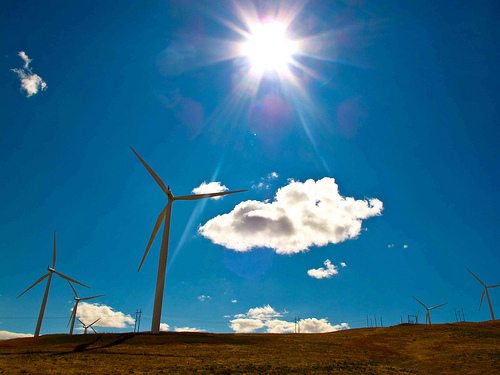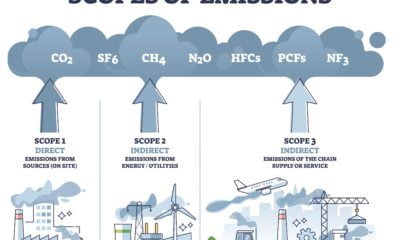

Energy
EU parliament puts weight behind renewable energy and climate targets
The European parliament has voted in support of legally binding renewable energy and energy efficiency targets for EU states.
On Wednesday, 341 over 263 MEPs voted in favour of enforcing three targets for 2030; requiring member states to reduce greenhouse gas emissions by 40% from 1990 levels, generate at least 30% of energy from renewable sources and improve energy efficiency by 40%.
The parliament’s vote is not binding, but it is evidence of MEPs’ dissatisfaction with the recent proposals of the European commission.
The commission – the only EU body able to approve such legislation – also voted for carbon cuts of 40% by 2030 but set an EU-wide target for renewable energy of 27%, rather than setting a target for each state. Critics called these more relaxed targets a “major disappointment” and “toothless”, warning that they would undermine investment in renewable technologies.
MEPs voted instead for national renewables targets by 347 to 308. This will be considered next month when member states resume the debate, but if nations opt to stick to targets proposed in January, MEPs will have no power to resist.
Jason Anderson, head of climate and energy at the WWF European policy office, called the parliament’s decision “a much-needed reality check”.
“Energy efficiency and renewable energy are integral to achieving a low-carbon future, and can’t be downgraded to afterthoughts”, he added.
Speaking after Wednesday’s vote, UK energy and climate change secretary Ed Davey said, “The right 2030 package will unlock low-carbon investment, while keeping consumers’ energy bills down.”
The UK government is one of those that opposed national renewable targets, though Davey insisted that he was “pleased that MEPs have come out in favour of an ambitious climate package for 2030”.
Meanwhile, Greenpeace policy director Doug Parr argued more ambitious targets were required.
“If the UK wants to reap the economic benefit of 21st century industries like clean energy, it needs a strong and growing Europe-wide market for the key technologies and their supply chains”, he said.
“This means binding targets for renewables and efficiency, and a scale of ambition on emissions reductions that keeps climate change within safe limits.
“It is imperative that the parliament and EU governments raise the bar and each country contributes to securing a clean energy future for Europe, and that the UK supports rather than obstructs it.”
Further reading:
EU 2030 energy and climate targets: the reaction
EU agrees on 40% emissions cut and 27% renewables targets
Row expected over European 2030 binding energy and climate targets






























